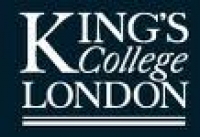Health and medicine have an importance in our contemporary world that goes far beyond the clinical encounter. All modern societies have recognised that the health of citizens is a matter of state, and have set up or supported health care systems to maintain health and to tackle diseases. These are not only ‘medical’, such as procedures for training and certifying doctors, networks of general practitioners, hospitals, specialised clinics, medical insurance systems and so forth. They are also ‘social’, from the provision of pure water, food and sewage systems, to the design of houses, education in child rearing and hygiene and health promotion. In addition, medicine and health care have huge economic implications, whether it be in public investment in medical research, in the costs on an economy of ill health, the role of multi-million pound pharmaceutical companies and much more. And, of course, these issues have geopolitical implications as we live in a world where there are major disparities in rates of illness and life expectancy, where conditions like HIV/AIDS and malaria lead to hundreds of thousands of early deaths each year, and with the ever present threat of global pandemics. Health, that is to say, is more than simply a medical matter.
Many people who are not medically trained work in the government departments, NGOs, the regulators, in industry and in research in the UK, Europe, the USA and most other regions of the world. This interdisciplinary degree programme provides students with the intellectual skills, empirical knowledge and research techniques required to think critically and independently about these issues, to support both their personal development and their career opportunities in this growing healthcare sector. It provides unique opportunities to combine a rigorous social science education in a leading social science department, with an introduction to key issues in medicine within the unrivalled medical facilities of King’s College London. By the end of the programme, students will be able to gather, organise and deploy evidence, discriminate appropriately to synthesise relevant information, construct reasoned arguments and reflect on their own learning so as to be better equipped for life-long learning.
With the job market becoming ever more competitive, it has been reported that King’s offers its graduates the best job prospects of any London or Russell Group university, with an employment rate of 95.2 percent, an increase of 2.6 percent on last year.
The data, compiled by The Careers Group, University of London, is based on institutional Employment Performance Indicators (EPI) for full-time, first degree, UK domiciled graduates in work or further study.
King’s has the highest EPI in the Russell Group and the largest increase in benchmark performance from 2009-10 figures.
The results also place King’s third overall in the UK as reported in The Telegraph’s ‘Top 10 universities for getting a job'.
Robert Hall, Director of Library Services & Employability, said: ‘This is testament to the commitment the College is making in ensuring that our students develop the right skills to succeed in the work place.’


